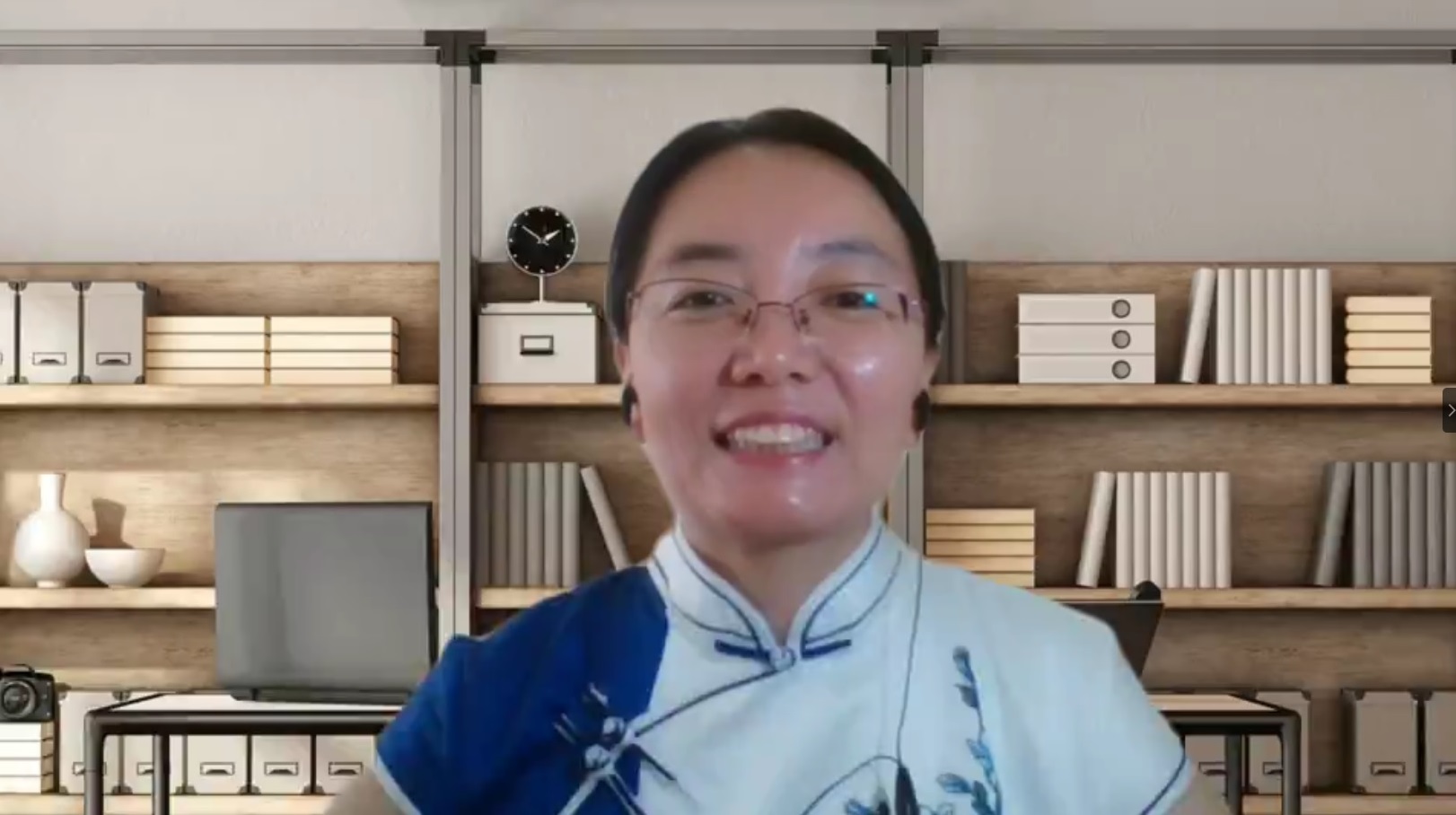
UTAR Centre for Learning and Teaching (CLT), in collaboration with Faculty of Business and Finance (FBF), organised a virtual talk titled “The Development of Online Education in China Universities and the Trend of Future Teaching Reform under the Epidemic” on 26 June 2020.
The talk, conducted via VooV, aimed to connect the educators with the current practices in China universities and stimulate the mind of educators to experience innovation in teaching and learning from a different point of view (focusing after COVID-19), as well as to introduce the future direction of teaching reform of China universities as guidelines for Malaysia.

Assoc Prof Dr Zhuang explaining how the teaching reform impacts educators and learners
The invited speaker was Assoc Prof Dr Zhuang Yan from School of Finance, Harbin University of Commerce, China. At the talk, she first explained the development of online education in China universities before and during the outbreak of COVID-19. She mentioned, due to the pandemic, China universities are in the process of evolving from face-to-face courses to online and hybrid courses using digital technologies to support student-centred pedagogy.
“During the pandemic, 1,454 institutions of higher education in China embraced online classes. Also, about 1.03 million academic staff started their online teaching; 1.07 million free courses were made available online and 17.75 million students involved in online learning,” she said.
She presented the development of massive open online course (MOOC) in China universities and shared how the Chinese government put their efforts in accelerating the MOOC development to build an innovative educational service system for learners. “The online education of China universities was initiated by our government in 2013. The six years of preparation enabled the country to respond promptly to the new crisis,” she said.
She also shared some free and open online course platforms used by China universities, namely “iCourse”(爱课程); “XuetangX”(学堂在线); “Zhihuishu”(智慧树网); “Chinese MOOCS”(华文慕课); CNMOOC(好大学在线). According to her, there were two online learning platforms launched in April 2020 to provide learning resources to learners around the world. The platforms were English version of “XuetangX”(学堂在线英文版)and “iCourse International”(爱课程国际平台).
Furthermore, Assoc Prof Dr Zhuang pointed out two trends of teaching reform in China universities and coping strategy of educators during this critical time. According to her, online education has become an important component of university education in China. “The COVID-19 outbreak has significantly accelerated the development of online education in China’s higher education. Modern technologies such as big data and artificial intelligence are now widely used in the education sector, which generates more comprehensive models of online education and learning resources,” she said. She added that the new direction of education reform was to cultivate talents who adapt to future social development. “The talents nurtured must satisfy future market demands, so that all resources, efforts and time invested are not wasted,” she explained.
The other trend involved the development of future education; it is largely student-centred and ability-oriented. She illustrated ways to achieve student-centred and ability-oriented education and provided a comparison of online teaching and classroom teaching from a learner’s perspective. Moreover, Assoc Prof Dr Zhuang mentioned that mixed teaching mode was the necessity for an inevitable choice of higher education reform. She also introduced some smart teaching tools that were widely used in China such as Rain Classroom(雨课堂) and MosoTeach(蓝墨云班课).
In order to clear up doubts for participants, Assoc Prof Dr Zhuang presented a SWOT analysis which provided the participants with an idea on how to embrace the changes that arise from the new reform. “All actions taken must have direction. It has to be based on the understanding of yourself and your judgment on the external environment,” she said. She also provided the participants with some insights by sharing strategies on how to become more resilient to the waves of reform and a crisis similar to the COVID-19 pandemic.
The talk saw the presence of approximately 60 participants
![]()
Wholly owned by UTAR Education Foundation Co. No. 578227-M LEGAL STATEMENT TERM OF USAGE PRIVACY NOTICE